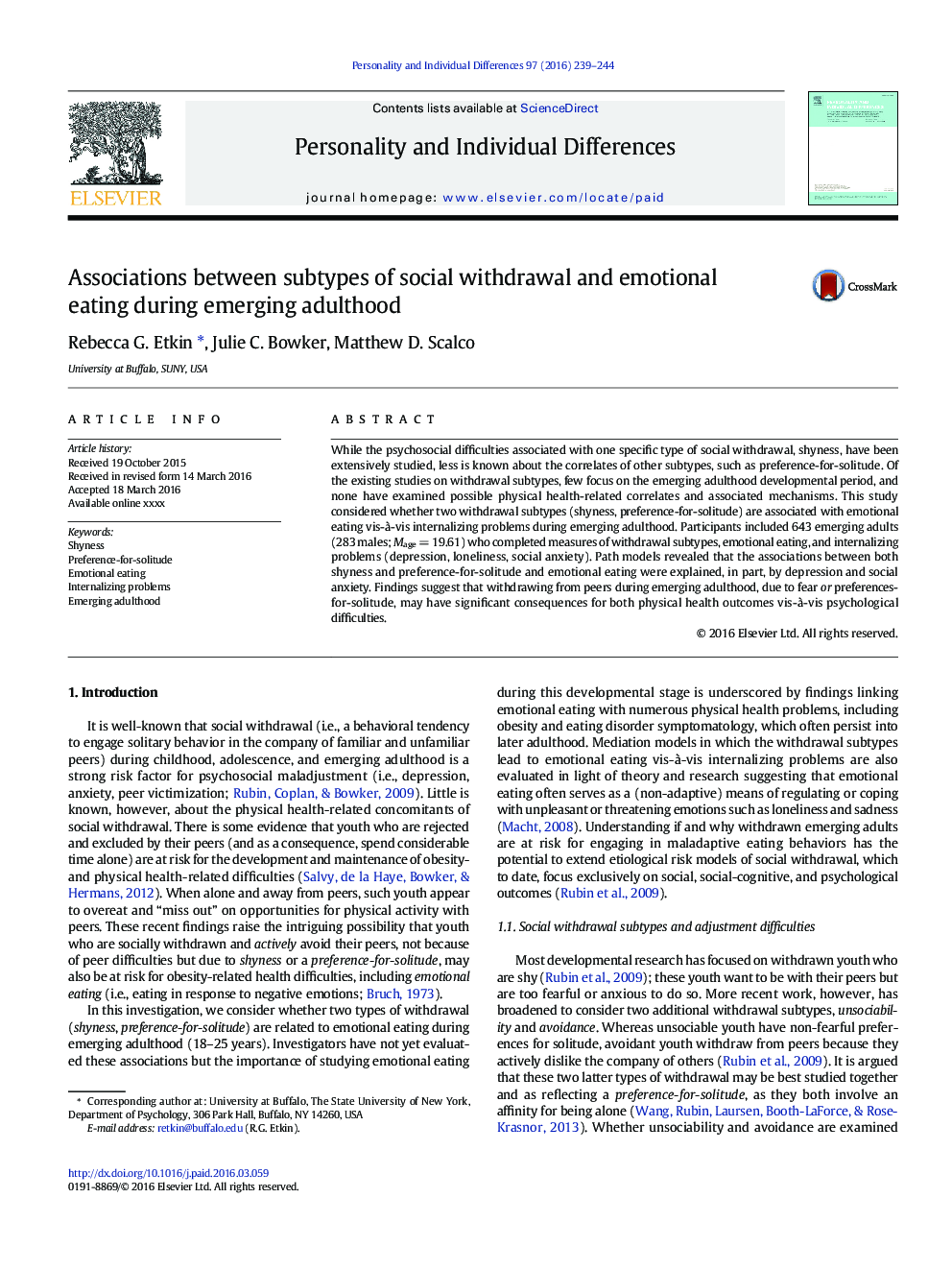| Article ID | Journal | Published Year | Pages | File Type |
|---|---|---|---|---|
| 7250070 | Personality and Individual Differences | 2016 | 6 Pages |
Abstract
While the psychosocial difficulties associated with one specific type of social withdrawal, shyness, have been extensively studied, less is known about the correlates of other subtypes, such as preference-for-solitude. Of the existing studies on withdrawal subtypes, few focus on the emerging adulthood developmental period, and none have examined possible physical health-related correlates and associated mechanisms. This study considered whether two withdrawal subtypes (shyness, preference-for-solitude) are associated with emotional eating vis-à -vis internalizing problems during emerging adulthood. Participants included 643 emerging adults (283 males; Mage = 19.61) who completed measures of withdrawal subtypes, emotional eating, and internalizing problems (depression, loneliness, social anxiety). Path models revealed that the associations between both shyness and preference-for-solitude and emotional eating were explained, in part, by depression and social anxiety. Findings suggest that withdrawing from peers during emerging adulthood, due to fear or preferences-for-solitude, may have significant consequences for both physical health outcomes vis-à -vis psychological difficulties.
Related Topics
Life Sciences
Neuroscience
Behavioral Neuroscience
Authors
Rebecca G. Etkin, Julie C. Bowker, Matthew D. Scalco,
